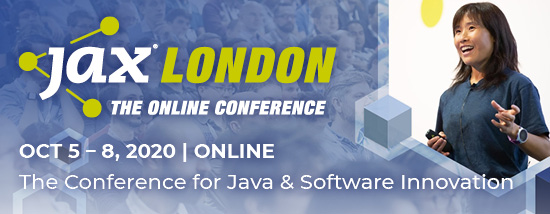A research study by The National Center for Women & Information Technology showed that “gender diversity has specific benefits in technology settings,” which could explain why tech companies have started to invest in initiatives that aim to boost the number of female applicants, recruit them in a more effective way, retain them for longer, and give them the opportunity to advance. But is it enough?
Three years ago, we launched a diversity series aimed at bringing the most inspirational and powerful women in the tech scene to your attention. Today, we’d like you to meet Leah Kolben, CTO and Co-founder of cnvrg.io.
Today’s Woman in Tech: Leah Kolben, CTO and Co-founder of cnvrg.io
 Leah developed her passion for technology at a very young age. By High School, she had already completed a BSc in Mathematics and Physics, and continued along this path in the Israel Defense Force (IDF) Intelligence unit, as an electrical engineer. Following her 3-year service in the IDF, Leah advanced her learning, earning a BSc in Computer Science at the Hebrew University of Jerusalem while simultaneously working as a software team leader at WatchDox, which was later acquired by Blackberry. In her most recent position, before founding cnvrg.io, she lead the startup, Appoint, as CTO – and has followed her career consulting enterprises on AI and Machine Learning.
Leah developed her passion for technology at a very young age. By High School, she had already completed a BSc in Mathematics and Physics, and continued along this path in the Israel Defense Force (IDF) Intelligence unit, as an electrical engineer. Following her 3-year service in the IDF, Leah advanced her learning, earning a BSc in Computer Science at the Hebrew University of Jerusalem while simultaneously working as a software team leader at WatchDox, which was later acquired by Blackberry. In her most recent position, before founding cnvrg.io, she lead the startup, Appoint, as CTO – and has followed her career consulting enterprises on AI and Machine Learning.
When did you become interested in technology?
I started being interested in computer science at a very young age. By high school I had already studied BS-level classes in mathematics and physics in the university. After high school I was recruited by the Israel Defense Forces to the intelligence unit specializing in electrical engineering. To be honest, at that point the path had been set for me. In parallel to getting my degree, I simultaneously worked as a software team leader at WatchDox which was later acquired by Blackberry. My motto back then, which still holds true today: go where you are most challenged and do your best to continue being challenged.
How did you end up in your career path? What obstacles did you have to overcome?
I look back today and realize how focused I was on completing my degree, and just simply being the best that I can be in my field. I didn’t even consider myself to be a minority and was blind to the fact that I had more hurdles than others around me, being a woman. Often, you’re not aware of the hurdles in front of you unless they’re pointed out to you. I didn’t consider it to be an anomaly to be a female computer scientist until it was pointed out to me later on. And I don’t always think that anomalies are a bad thing. While I often stand out as the only woman surrounded by the majority of men, I am able to use the fact that I am an anomaly to my advantage. I have a unique platform, to not just to share my opinions, but also to lead.
Did you receive support from your family and friends? Do you have a role model?
There have been many people throughout my childhood and throughout my career that have supported or inspired me. Whether it has been a teacher, my family and husband, my co-founder, or even my children. It’s always been key to my success to have inspiration from different people around me or even to look how others overcome obstacles like Kobe Bryant. I’ve always found that you create a support group when you need it most – and different people can give you different types of support.
I have a unique platform, to not just to share my opinions, but also to lead.
Did someone ever try to stop you from learning and advancing in your professional life?
I think society as a whole can be the primary barrier for women advancing in tech. Not just the stigmas and biases that society has in their subconscious, but also the way the system is created. While things are changing slowly, I don’t think society gives many options for women to advance in their professional life, especially when you are a mom, or even planning to be a mom. Many women are faced with deciding between advancing in your professional life or building a family – which is a decision, men do not need to consider. This is why I built my own company, because at cnvrg.io I did not have to make that choice. As a leader, I am able to choose both to be a mom and advance in my career. Not many women have that opportunity to make that happen and do it successfully. And getting that far has definitely not been easy.
A day in Leah’s life
After years as an AI consultant, I founded cnvrg.io along with my co-founder Yochay Ettun, building an operating system for machine learning. Built by data scientists, for data scientists, cnvrg.io was created to actualize the AI driven enterprise, and is the only solution to unify code, projects, and supports deployment at scale. The platform offers unrivaled flexibility to run in any environment and provides data scientists with all the tools they need. From advanced MLOps automated pipelines to granular resource management, cnvrg.io brings top-of-the-line technology to data science and IT teams so they can spend less time on DevOps and focus on the real magic – algorithms.
What are you most proud of in your career?
We’ve worked with our customers to deliver the best ML platform out there to actualize the AI-driven enterprise. The cnvrg.io team prides itself on moving fast, helping us stay ahead of the fast-moving ML development world. We’re the first to push features and integrate the latest tools. When our customers are happy and can do what they do best – which is innovate and solve complex problems with AI – that is when I feel we’ve truly succeeded.
I am also proud to have built a team and company that feels like family. When I see my team working together and having fun doing it, it reminds me why we work so hard to build a company of our own. We have built an incredible environment of incredible and talented people at cnvrg.io, and that is something I am very proud of.
Why aren’t there more women in tech?
Children do not naturally become interested in something because of their gender. Often, it’s society that labels certain positions and activities or passions. It is a made-up assumption! I think that if young girls are exposed to computer science from an early age, we will see more women in tech.
I advise women in AI and any other STEM-based job to focus on their goals and let your skills guide you.
Could you name a few challenges (or obstacles) women in tech face?
As a woman entering any STEM career, there are endless barriers that we experience. Perhaps it is being identified as a minority or being treated differently. Working in a male-dominated field takes its toll on your mental stamina, and your character. Motherhood is also a balancing act that can be a big obstacle when advancing in tech.
Lastly, it can also be difficult to pave the way for other women, and open more doors to women in tech. It can be very intimidating to be the only woman in a male-dominated field. In order for more women to feel comfortable in tech, you need more women! That is a bit of a chicken and egg situation. How can we encourage more women to be in tech when you have to push through so many challenges?
Would our world be different if more women worked in STEM?
Yes, I know that a more equal and diverse field would increase innovation and discovery. STEM fields require a diversity of ideas and out-of-the-box thinking that can only happen when there is a mix of backgrounds and perspectives. If there was equality in STEM, we would immediately see an economic shift, as we would be able to realize the potential of millions of intelligent professionals that otherwise would not be in the field at all.
The discussion about diversity is gaining momentum. How long will it take to see results from the current discussion?
While it feels like it will take a long time to reach real equality, we are seeing great momentum from the younger generation. I’ve worked with many programs that promote female youth to begin coding and starting to learn STEM sooner. This is encouraging to learn at a young age, because then it becomes normalized that this is a field for you. I am also seeing more and more women reaching management and C-level positions in technology, and these women are paving the way for the next generation.
What advice (and tips) would you give to women who want a tech career?
As I stated in an early question, I advise women in AI and any other STEM-based job to focus on their goals and let your skills guide you. Don’t fall into the trap of stigmas or biases. Remind yourself any time that you lose focus, that you are just as capable as anyone else to do the job you are doing. Remind yourself that stigmas are imaginary.
Address biases head-on. If you walk into a meeting and you sense that someone is making assumptions about you because you are a woman, or because you just had a baby, address it right away. I’ve found that sometimes if you talk about it before people ask you about it, they won’t fall for the stigma. Be direct about other people’s fears and thoughts about you.
When you reach the other end of the tunnel and become a leader in the field, don’t let others around you play into the stigma. When you have the power to hire and recruit, when you have the voice to make a change, take every opportunity to eliminate that stigma, and also to promote other qualified women you come across.
And lastly, I think that women should remind themselves that we all fail sometimes, and we overcome failures by finding what went wrong and how to learn from it. I feel that sometimes we’re pressured not to fail because we hear so many successful stories, but it is okay to fail because it makes us better in the end. Every success story has its many failures.
More Women in Tech:
- Women in Tech: Maraja Fistanic and Pia Michel, Founders of LegalTegrity
- Women in Tech: Anastasia Astakhova, Product Manager at Boxmode
- Women in Tech: Priscila Oliveira, software engineer at Sentry
- Women in Tech: Dr. Karen O’Brien, Global SAP Product Development Director, HCL SAP Practice
- Women in Tech: May Goldstein, Senior Infrastructure Consultant at Red Hat
The post Women in Tech: “Don’t fall into the trap of stigmas or biases” appeared first on JAXenter.
Source : JAXenter



















